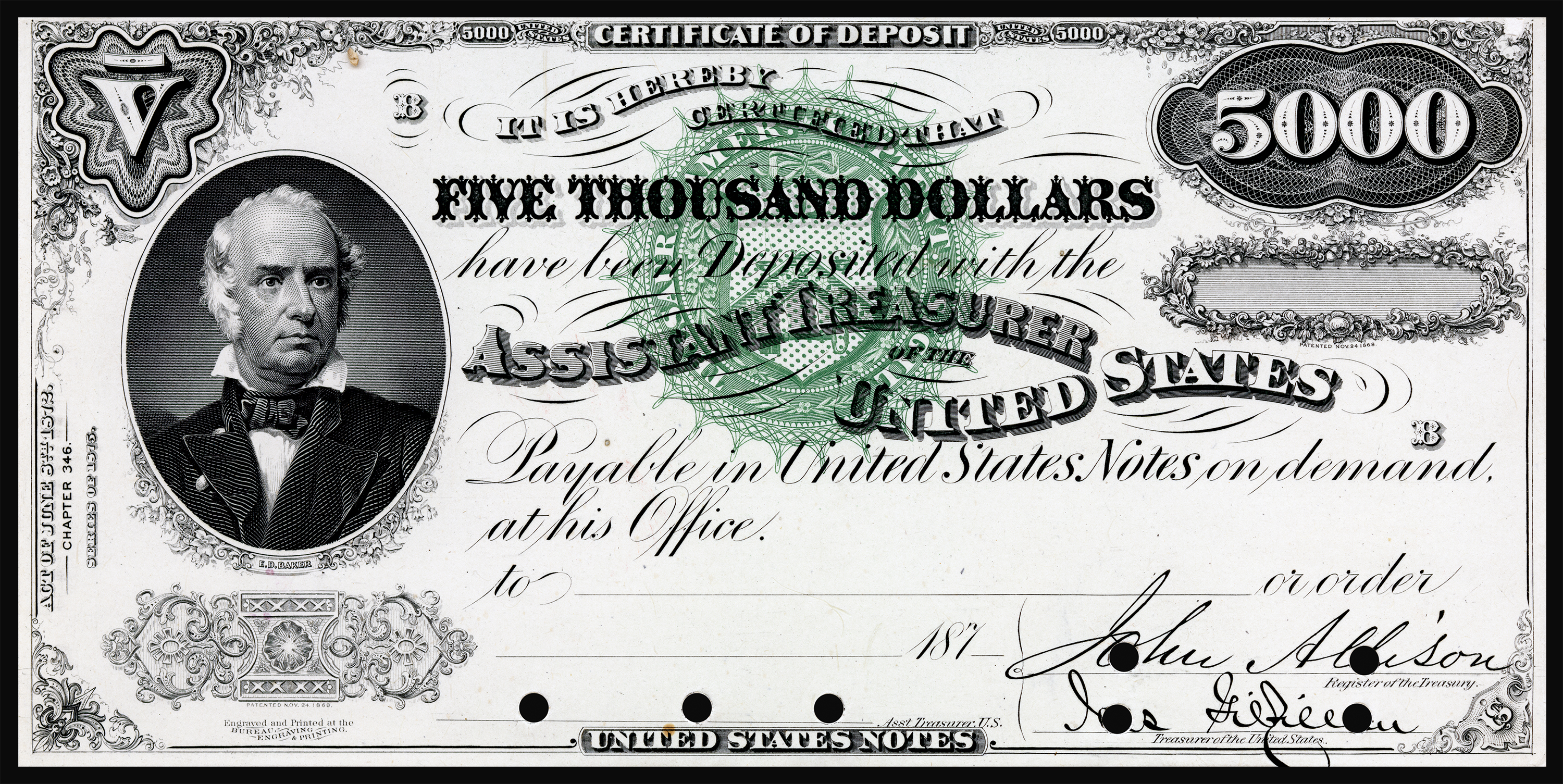
A certificate of deposit (CD) is a low-risk investment consisting of a saving certificate issued by a commercial bank or other financial institution. A CD has a fixed maturity date as well as a fixed interest date. Generally speaking, the longer the CD has to mature (known as the “term”), the higher the interest rate. Money can be withdrawn before the maturity date, but at the cost of paying an early withdrawal penalty based on the interest rate. Typical terms for CDs range between one month and five years. Most CDs can be set to renew automatically after the maturity date. CDs less than $100,000 are considered small, while CDs exceeding that amount are called large or jumbo.
Certificates of deposit are useful for their safety. Even if the financial institution that issued the CD collapses, much of the money can be recovered. As a result of the 2008 government bailout, the FDIC currently insures CDs up to $250,000 per individual account. The downside is a loss in liquidity due to the condition of the maturity date. Additionally, the interest rate of a CD is generally close to that of inflation. This means that while they earn much more interest than a checking or savings account, they earn much less than a typical stock portfolio in the long term.

Recent Comments